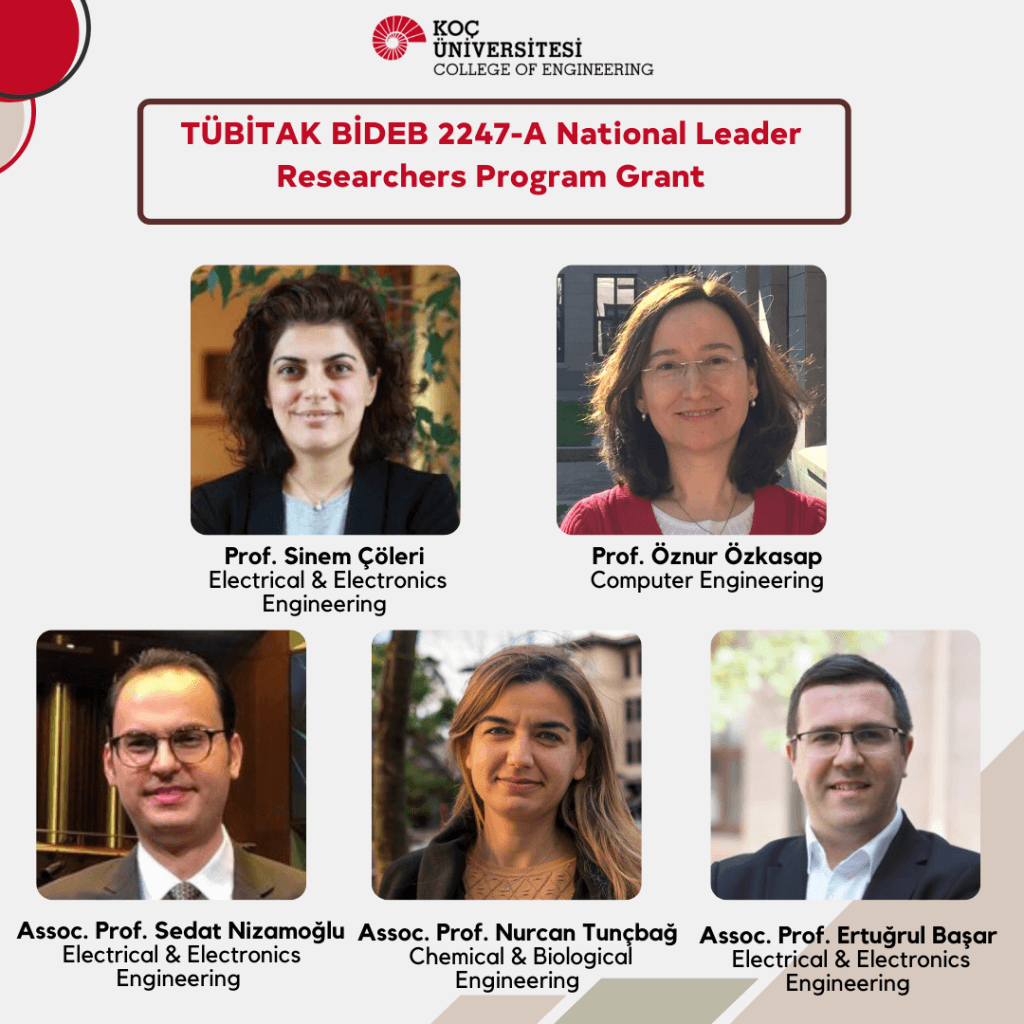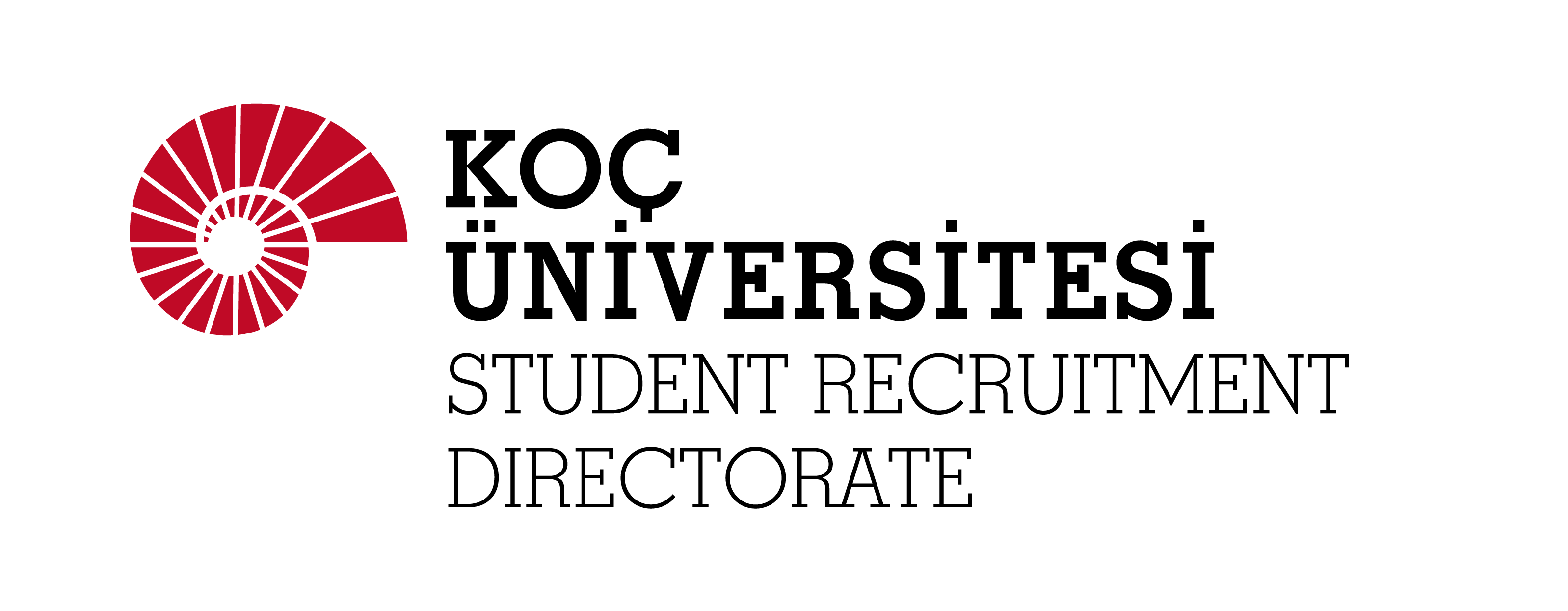Congratulations to our faculty members who have received the TÜBİTAK 2247-A National Leader Program Grant!
Prof. Öznur Özkasap (Computer Engineering), Prof. Sinem Çöleri (Electrical and Electronics Engineering), Assoc. Prof. Sedat Nizamoğlu (Electrical and Electronics Engineering), Assoc. Prof. Ertuğrul Başar (Electrical and Electronics Engineering) and Assoc. Prof. Nurcan Tunçbağ (Chemical and Biological Engineering) have received the TÜBİTAK 2247-A National Leader Program Grant.
We are pleased to inform you that Koç University has once again received the largest number of projects (9 out of 31) and the College of Engineering has received 5 project grants out of 9.
- Prof. Sinem Çöleri’s project titled “Machine Learning and Extreme Value Theory-based Ultra-Reliable Communication for Wireless Control Systems” enables many ultra-reliable control system applications, such as intra-vehicular wireless sensor networks, cyber-biological systems, and autonomous vehicle platoons, thereby, creating significant environmental, social and economic impact in such areas as transportation and health.
- Prof. Öznur Özkasap’s SynergyNet project aims to develop effective system techniques and algorithms by applying innovative distributed blockchain, smart contract, and federated learning principles to key research problems within the Internet of Energy.
- Assoc. Prof. Sedat Nizamoğlu’s project titled “Near-Infrared Sensitive, Quantum Dot Based and Hydrogel-integrated Capacitive Optoelectronic Biointerfaces for Cardiac Cell Excitation” aims to develop new devices to prevent battery replacement in the heart. In this project, innovative and flexible biointerfaces that are biomechanically compatible with cells and that can operate effectively under near-infrared light and generate safe capacitive current will be demonstrated.
- Assoc. Prof. Ertuğrul Başar’s project will focus on deep learning-based novel communication system designs and technologies for the 6th generation (6G) and beyond wireless communication networks.
- Assoc. Prof. Nurcan Tunçbağ’s project titled “OMIC-NET” aims to develop a novel and high-performance modeling framework to reconstruct intracellular and intercellular communication networks in cancer by integrating context-specific multi-omic data and adapting it to single-cell data.

